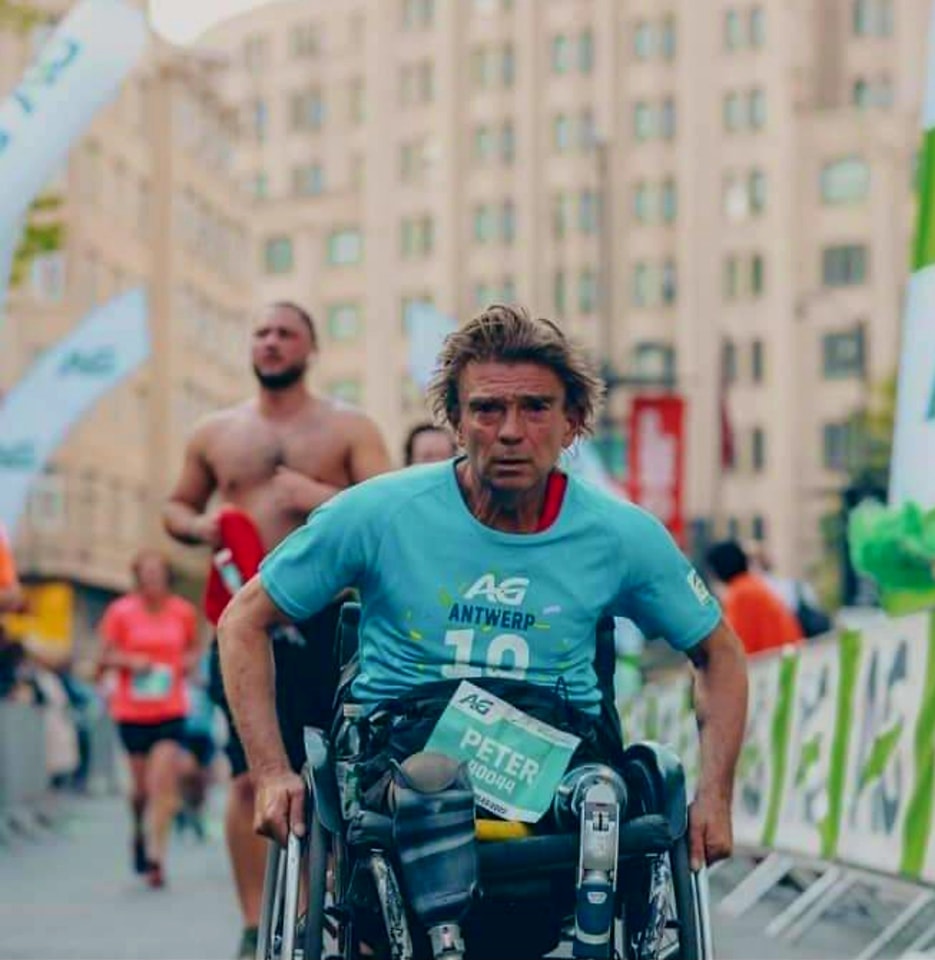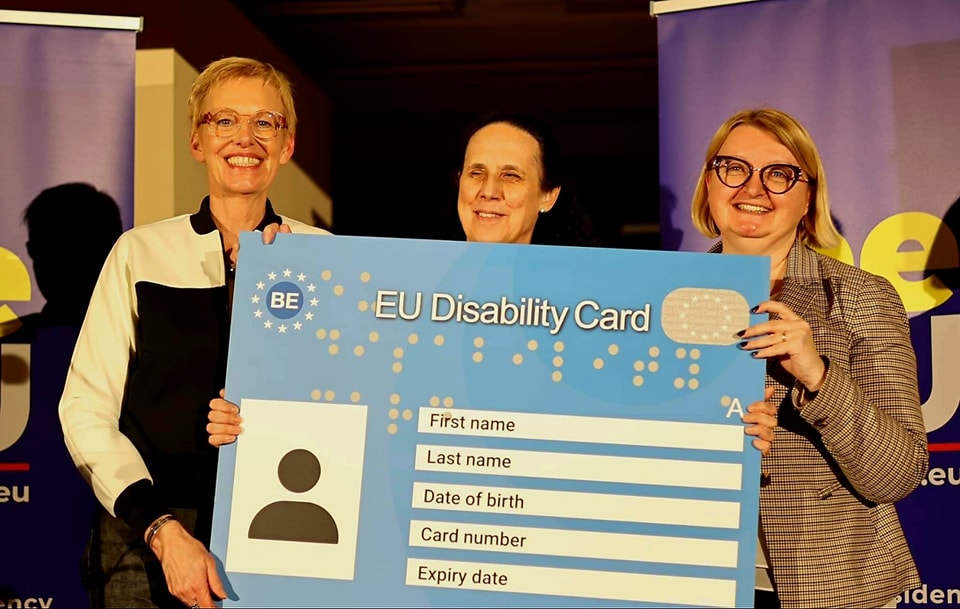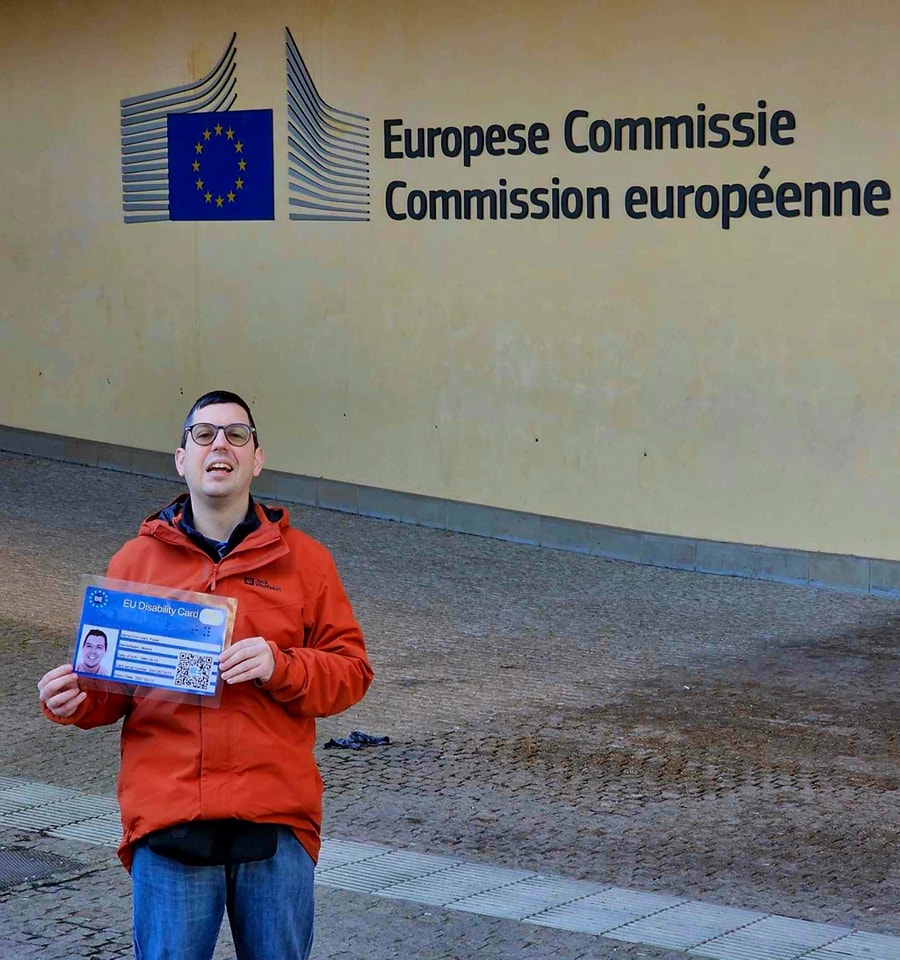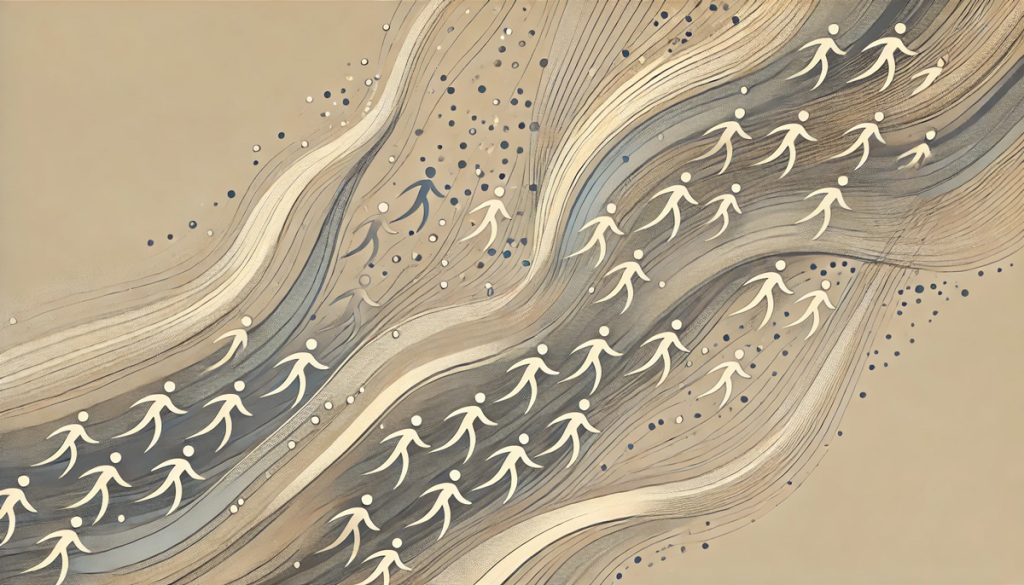
Social and economic integration
Addressing the needs of people with disabilities is paramount in the pursuit of a more inclusive Europe. The European Union has made strides towards inclusivity, but the journey towards equal access and possibilities for all, particularly for people with disabilities, is ongoing.
Currently, approximately 125 million European citizens, or about one in six people over the age of 15, live with some form of disability (Entrepreneur Institute). This statistic underscores the importance of developing infrastructure and policies that support inclusivity. Despite efforts, people with disabilities face significant challenges, including higher rates of unemployment and poverty. Only 50.6% of people with disabilities are employed compared to 74.8% of those without disabilities, highlighting a gap in employment opportunities (Entrepreneur Institute).
Moreover, people with disabilities are more likely to experience poverty and social exclusion. In 2022, 28.8% of EU citizens with disabilities were at risk of poverty or social exclusion, compared to 18.3% of those without disabilities (European Commission).
This discrepancy indicates the barriers to achieving full social and economic integration.
In Belgium, a notable concern is the high share of people with disabilities living in households with very low work intensity, at 30.5% (European Commission). This statistic is among the highest in the EU, pointing to a significant challenge in integrating people with disabilities into the labor market and society at large.

The situation in Ukraine, exacerbated by the war, has led to an increase in the number of people with disabilities. While specific statistics from Ukrainian governmental bodies were not readily accessible, it is widely acknowledged that the war has significantly contributed to the number of individuals with special needs. The need for inclusivity is ever more critical as Europe prepares to support those affected by the war, ensuring that infrastructure and policies are in place to offer equal access and opportunities.
Leadership in inclusivity
Europe is considered ahead in inclusivity, partly due to its comprehensive policies and initiatives to improve the lives of people with disabilities. For instance, the European Disability Strategy 2010-2020 and the new Strategy for the Rights of Persons with Disabilities 2021-2030 outline ambitious plans covering accessibility, employment, education, and social inclusion (Entrepreneur Institute). These strategies aim to enhance participation, equality, and access to services for people with disabilities.
However, there is still much to be done, including:
- Enhancing Employment Opportunities: Initiatives to support employment for people with disabilities must be expanded. This includes workplace adaptations, financial incentives for employers, and support for self-employment and entrepreneurship among people with disabilities.
- Accessibility: Ensuring physical and digital environments are accessible to people with disabilities is crucial. This includes public transportation, buildings, and online services.
- Education and Training: Providing inclusive education and training opportunities to empower individuals with disabilities with the skills needed for the labor market.
- Social Protection: Strengthening social protection systems ensures that people with disabilities do not fall into poverty and can participate fully in society.
Addressing these areas, Europe can further its leadership in inclusivity and set a precedent for supporting people with disabilities. This commitment to inclusivity improves the lives of affected individuals and enriches society as a whole, creating a more equitable and diverse community.
The European Parliament in Advancing Disability Inclusivity
The European Parliament stands at a critical juncture in shaping the future of inclusivity for people with disabilities across Europe. As legislative architects, members of the European Parliament have the unique ability and responsibility to advocate for, draft, and enact policies that directly address the disparities highlighted in our discussions. Their role transcends mere advocacy, positioning them as pivotal players in transforming societal norms, infrastructure, and legal frameworks to serve individuals with disabilities better.
To enhance the living conditions, employment opportunities, and societal participation of people with disabilities, the European Parliament should prioritize the following actions:
- Legislative Advocacy: Championing robust laws that eliminate barriers to accessibility, employment, and social inclusion for people with disabilities.
- Budget Allocation: Ensuring sufficient funds are explicitly earmarked for developing accessible infrastructure, educational programs, and technological innovations that support inclusivity.
- Oversight and Accountability: Monitoring the implementation of existing policies and allocating resources to guarantee that commitments translate into tangible improvements.
- Collaboration with Stakeholders: Engaging with disability advocacy groups, NGOs, and individuals with disabilities to inform policy-making and ensure that legislation is grounded in the lived experiences of those it aims to benefit.
- International Cooperation: Working closely with bodies outside the EU, including the United Nations and other international organizations, to share best practices and foster a global approach to disability rights and inclusivity.
The European Parliament’s involvement in this cause can accelerate progress towards a more inclusive society. By leveraging its legislative power, the Parliament can help dismantle existing barriers and lay the foundation for a future where individuals with disabilities can enjoy the same freedoms and opportunities as their fellow citizens. The time for action is now, and the European Parliament has a crucial role in this transformative journey towards inclusivity and equality for all.

The European Disability Card initiative
Pieter Paul Moens, an individual with an autism spectrum disorder, was instrumental in the European Disability Card (EDC) initiative in Belgium. Back in 2007, Moens introduced the idea of a card that would facilitate more accessible access to cultural, leisure, and sports activities for people with disabilities across Europe. His personal experience and advocacy played a crucial role in bringing the EDC from concept to reality, with the Belgian government officially beginning its implementation phase in 2016. Moens’ dedication to this cause highlights a significant step towards inclusivity, ensuring that persons with disabilities are recognized and can avail themselves of specific advantages in participating countries (Pieter Paul Moens) (Pieter Paul Moens).

The European Disability Card aims to provide proof of recognition for persons with disabilities within Belgium, allowing them access to specific tariffs and benefits across various domains, including culture, leisure, and sports, with plans to expand into other areas. This initiative, which initially involved eight European countries, including Belgium, signifies a collaborative effort to support the rights and inclusivity of people with disabilities. The card, as envisioned by Moens, represents more than just a discount tool; it embodies the broader principle of inclusion, seeking to integrate individuals with disabilities more fully into society (21Bis) (Pieter Paul Moens).
Moens’ initiative also led to the development of the ‘Autipas’ in 2006, a card indicating that an individual has an autism spectrum disorder. This card later became integrated into the EDC framework. This move further emphasizes the inclusive spirit of the European Disability Card, catering to the nuanced needs of individuals with diverse disabilities (21Bis).
The European Disability Card initiative, championed by figures like Moens, underscores the European commitment to building a more inclusive society where individuals with disabilities are empowered to participate equally in all life aspects. This endeavor aligns with the European Commission’s strategy for the rights of persons with disabilities 2021-2030. It aims to safeguard these individuals from discrimination and ensure they enjoy the same rights as other EU citizens (21Bis).
References:
- The Institute of Entrepreneurship Development. The Status of Employment and Disability in the EU in 2021
- Eurostat. Disability statistics – poverty and income inequalities
- Pieter Paul Moens. Zuhal Demir werkt verder aan de European Disability Card
- Pieter Paul Moens. De European Disability Card is uit de startblokken
- 21Bis. European Disability Card available for all European Countries in 2023, but barely known in Belgium
- The Associated Press. Upward of 20,000 Ukrainian amputees face trauma on a scale unseen since WWI





